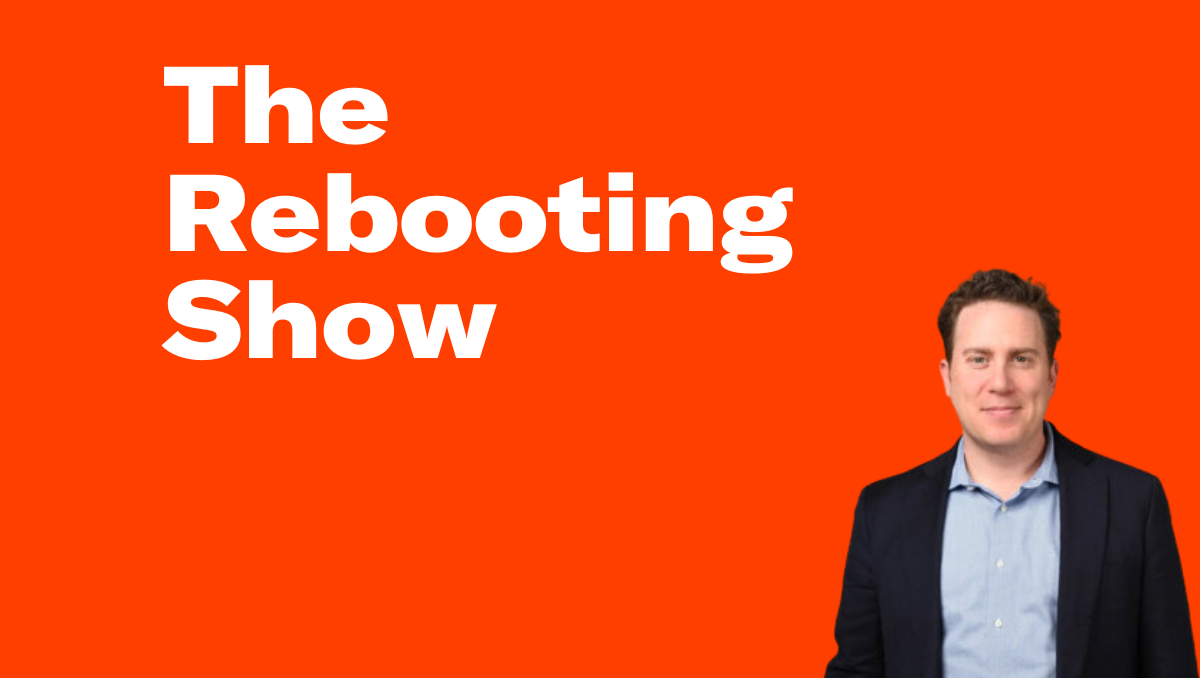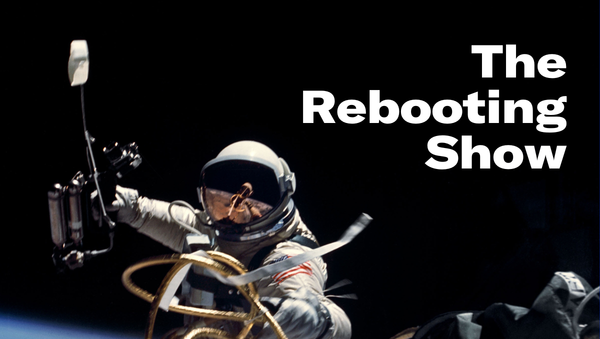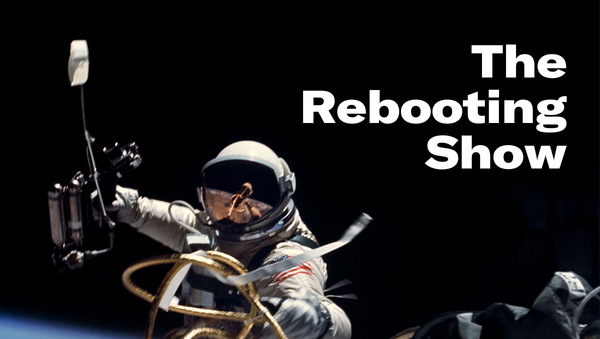Journalism's 'warrior priests'
A conversation with Semafor's Ben Smith

This October it will be four years since I started The Rebooting. I’ve focused on staying lean and growing organically. It felt like a fitting path for the current moment.
The Rebooting has a newsletter audience of 25,000, podcasts downloaded 20,000 times a month, and growing events, lead gen and content marketing business lines. The business will double to more than $1m this year.
The challenge of this kind of model is around “scaling yourself.” Trying to do a million things at once is impossible in the long run. I’m looking to add a business operations lead who will be a critical partner in expanding TRB. Learn more about the position and type of person I’d like to add.
In today’s newsletter, I had a conversation with Semafor’s Ben Smith about his new podcast, Mixed Signals, why newsrooms are often fractious places that defy normal business logic.
An end to journalism’s ‘warrior priests’ era
Ben Smith’s theory of media is that it is conspiracy, only not the one outsiders typically think. With Mixed Signals, the new media podcast Ben hosts with Nayeema Raza (Max Tani plays a critical Andy Rooney role), aims to explain media as a connective tissue between the real power centers of technology, politics and culture. Ben joined me on The Rebooting Show to discuss this singular moment in the media business.
”We have this fragmenting landscape and inside that you have these remnant big newsrooms that are trying to fix their businesses and sharpen their brands and identities."
That makes running these places a daunting task. The oddity of journalism is that it is an unaccredited profession that acts like it is the law or medicine, or in Ben's formulation like a medieval guild, in which ultimate loyalty is to the professional ethos rather than the employer.
The guilds assured quality and standards while exerting power on behalf of their members. Among the drawbacks to the guild system that ChatGPT highlights:
- Restricted competition and innovation.
- Created barriers to entry for new practitioners.
- Could lead to corruption and nepotism.
- Sometimes resisted technological advancements.
The practical result is newsrooms are governed by consent rather than diktat, an upside-down reality that business operators those from the outside often find baffling and self-defeating. The extremely hard-core management ethos stands little chance.
Enter the Brits. The current vogue is to bring in a veteran of London’s looser news culture that tends to be less self-serious and more cutthroat. Ben sees this as part of the story of the media business’s transition, as owners like Jeff Bezos follow the cultural shift underway that is moving back toward the center from the leftward swing during the pandemic. Saving democracy turned out to be a luxury belief.
“There was this moment when changing your motto to ‘democracy dies in darkness’ and positioning yourselves as warrior priests in the struggle against Donald Trump was great for business, won Pulitzers and led you to congratulate yourself."
The pivot to opposition paid short term dividends. The Post itself was crowing about its pageviews crested The New York Times back in 2016. Of course, the Times had already cast its lot with subscriptions and a disciplined business strategy that poured money into its core journalism, appealed to a progressively minded readership nationwide agitated by Trump, and complemented that with an array of lifestyle and journalism adjacent products that would become the core of The Bundle.
The ZIRP era was a tide that lifted nearly all boats. Subscriptions were up. Advertising held up. The Trump Show was great for readership and ratings. New business lines like affiliate offered the promise of found money by arbitraging brand reputation to serve up high-margin shopping pages. That didn’t last.
Now there is a low-grade civil war in these newsrooms. Ben sees an effort by management and ownership to fix the economics of their businesses and “sharpen their brands and identities.” That’s led to skirmishes between management and unions, as well as between unions and members over issues like the Israel-Gaza war.
"It's really hard to build a good culture when you're cutting costs,” Ben noted, adding, “If you go in and you tell your roomful of journalists that the days of wine and roses are over and you're in a business, your best journalists are gonna leave."
Both the Journal and the Post are unique in that they have billionaires who ultimately call the shots. “An audience of one” is how Ben puts it.
The vows to not repeat the mistakes of the past go out the window when there's a promise of tech handouts. The threat of AI is well known, but few publishers have much of an appetite for an epic legal fight against companies with a T next to their market cap. They sensibly took the money instead, holding out the possibility that lawsuits can always follow later on.
“There's a real risk in a deal that is basically, here's some money, stop complaining, as opposed to a deal that is a clear value exchange."
Listen to the conversation with Ben on Apple | Spotify | other podcast platforms

Later this week, I'm heading to Cannes for somewhere between the 15th and 17th time. It will be a busy week with private dinners, cocktail parties and several podcast events around town. Check out all we have going on during the week.
I’m going to write a newsletter each day from Cannes. In particular, I’m going to focus on what I’m hearing about how the environment is shifting and how that will affect publishers, in particular the pressing challenge of building sustainable models for news.
One podcast I’m doing will examine this issue with Johanna Mayer-Jones, CRO, The Washington Post; David Kostman, CEO, Outbrain; and Kate Scott-Dawkins, Global President, Business Intelligence, GroupM.
If you’re heading to Cannes and want updates on The Rebooting’s various programs, let me know.
Thanks for reading. Send me a note with feedback by hitting reply or emailing me at bmorrissey@therebooting.com. And I appreciate any recommendations for the business operations lead role.




